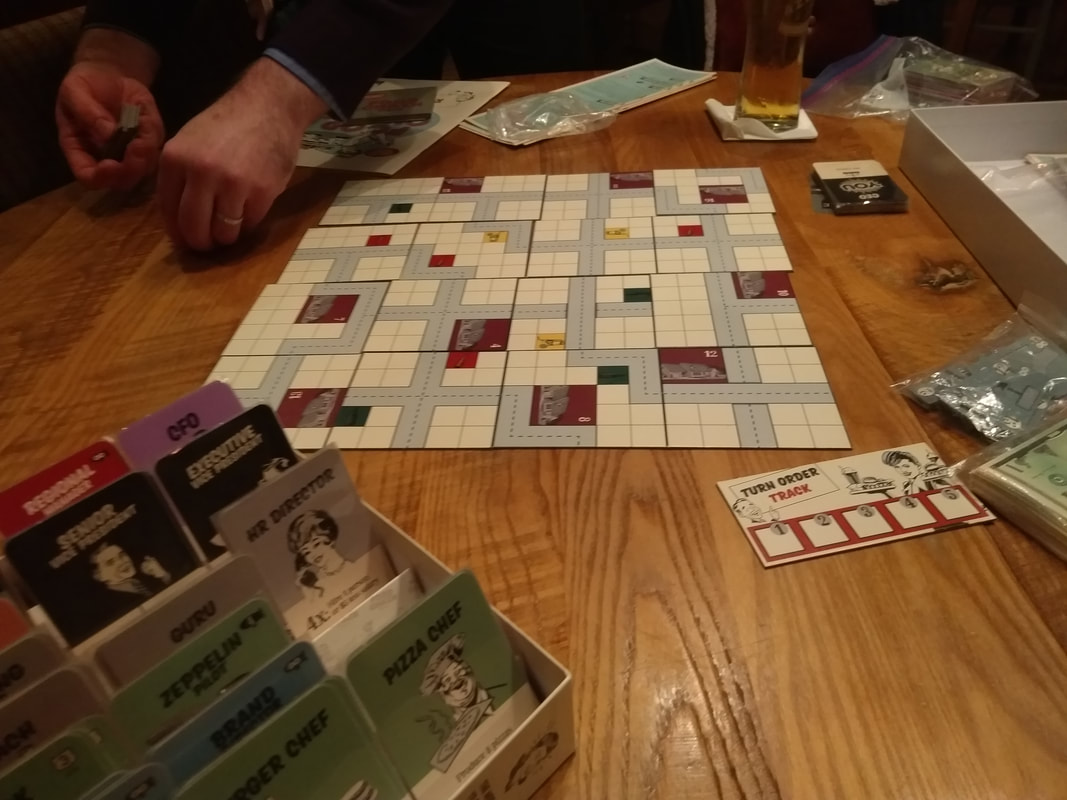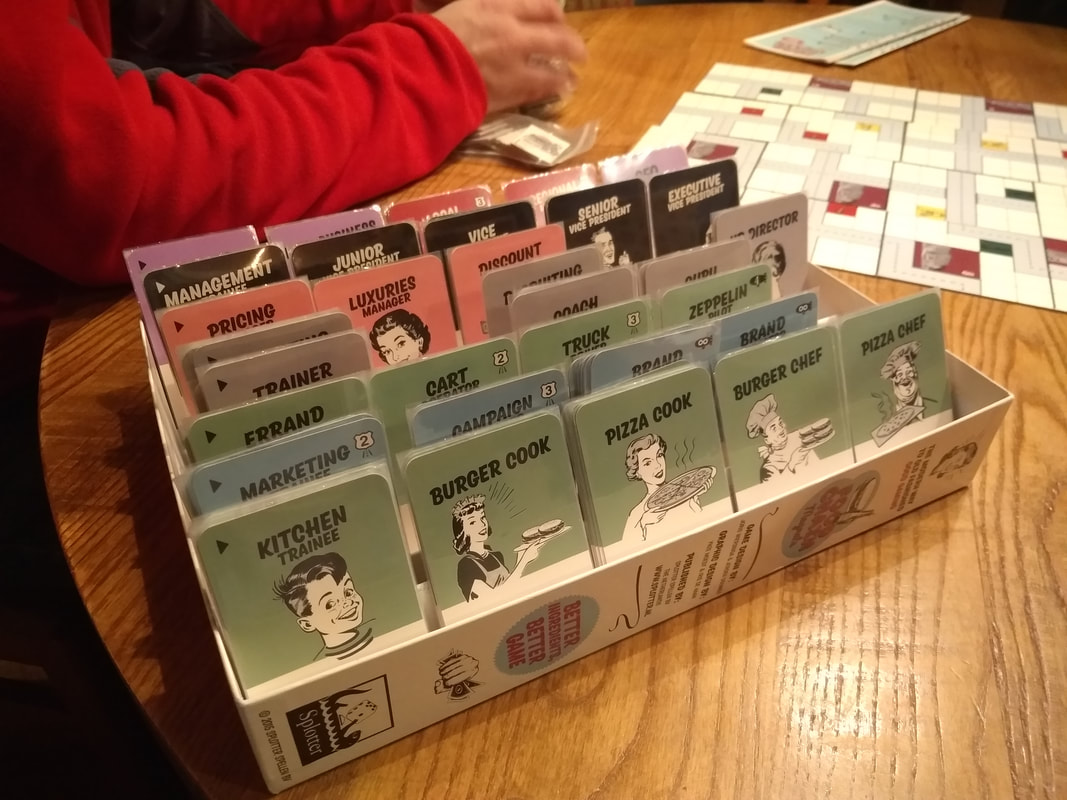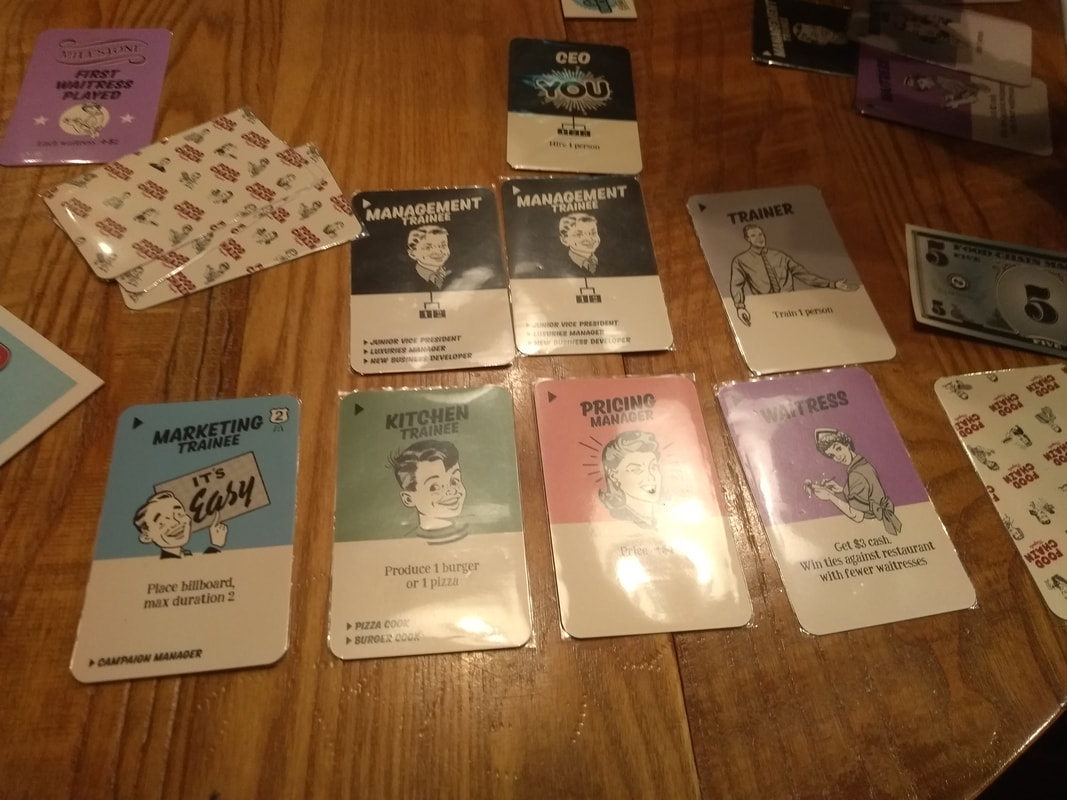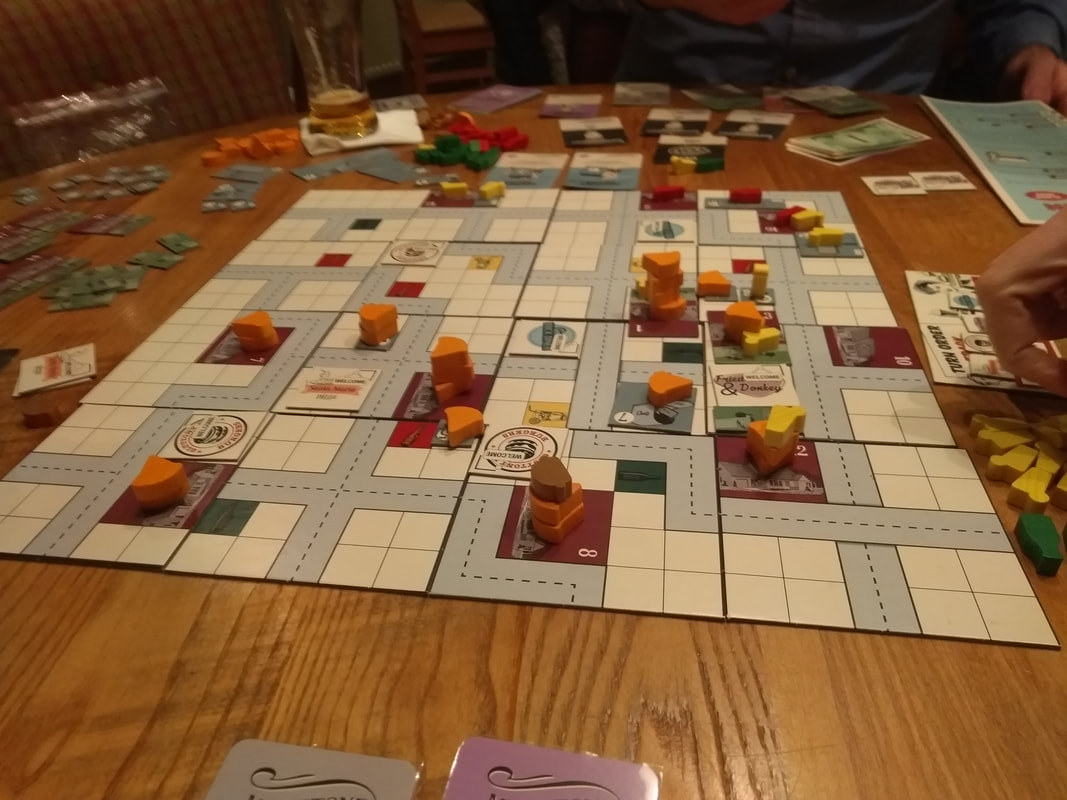|
28th January 2020 Tuesday is here and we're at 'The Sovereigns' in Woking to play board games. Popular opinion states that most restaurant fail in the first year, so running one is hard work (And believe me I know!). What could be harder? Running a whole chain of restaurants! That's where 'Food Chain Magnate' comes in. Now you too can know what it's like to run restaurants without all the 'fun' of inconsistent staff, irritating customers, infuriating regulations and interfering local authorities. What's in a game? There's quite a lot to Food Chain Magnate and quite a lot of components too.
How's it play? First; setup.
A round of Food Chain Magnate is played over 7 rounds.
Endgame Play continues until all the allotted money from the 'bank' supply is depleted, in which case any remaining money is paid out from the reserve supply. The player who has accumulated the most money, wins. Overall
Food Chain Magnate markets itself as a 'heavy' game and it's not kidding. The aim of the game is to build housing and create marketing campaigns, this generates a demand for whatever particular food & drink the player decides advertise. Then the player produces the relevant food & drink to fill that demand, this equals profit. Except it's not so simple. There is a lot to think here and all of it is important. How a player structures their company is crucial. All of the other actions options will become avaialable based on the staff cards that you recruit and play. A lot to think about. You need food? Pizza chefs will produce pizza and burger chefs will produce burgers. You want drinks? You need an errand boy to go and collect them. Want to be more competitively priced? Get a pricing manager. Need an advertising campaign. You'll have to get marketing staff. Want to place more housing? A business developer is what you need. Your staff need training to be more effective? Trainers are what you need. You got too many staff? Get more managers! Need to recruit people even quicker? Recruiters are what's needed. And so on. Marketing needs to be targeted. There are different types of marketing that target a player's audience at different 'ranges' and they tend to be of varying length. Players will need to optimise creating their demand. Advertising can have a real sting in the tail. Because other players can benefit from it too. If one player creates a demand for burgers and another player then opens a burger joint closer to the housing that's been targeted, then the customers will go there instead (Customers have absolutely no loyalty!). Or if another player slashes the price of their burgers, then other restaurants will be ignored. Sly players will definitely try and exploit other player's marketing. This brings me to 'pricing'. This is a great game mechanic. Instinctively, players will want to increase prices to generate more revenue. But a player really needs to undercut their opponents, because less profit is better than no profit. Pricing is a real race to the bottom and forces players to make horrible choices - always a good thing! Players will also need to think about food & drink production, as more and more demand appears, players will need to get better and better at production to meet that demand. Also, as demands get more complex, fulfilling those demands gets equally as complex (A house's demands cannot be only partially fulfilled and must be fully met.). And don't forget milestones, the benefits they can confer can be very important. When we played this game, the owner explained to us that he thinks at the start there's a couple of different routes to follow for 'opening moves' that there are 'no brainer' moves (These are to do with milestones.). It seems some of the milestones can be completed in the first couple of turns and only the first player(s) that complete them get the benefit, not following the 'no brainer' moves means a player can lose out on those benefits. This implies that early moves (Or mistakes really!) can affect the entire game. I'm not sure how I feel about this? I don't like 'no brainers', because what they do is remove choice from a game. On the other hand, maybe it was overstated. I guess the game would need to be played multiple times to see if this is the case All of this contributes to make Food Chain Magnate a deep game that requires a lot of forethought and strategy. There is no luck or chance in this game. If you like genuinely heavy games, this may interest you. For me though, I found it to be a little bit difficult to play the game on all the levels it required and mostly ignored the marketing side. It felt a strangely unengaging game, perhaps it was the theme?
0 Comments
Leave a Reply. |
AuthorI play, I paint. Archives
March 2024
Categories
All
|





 RSS Feed
RSS Feed
